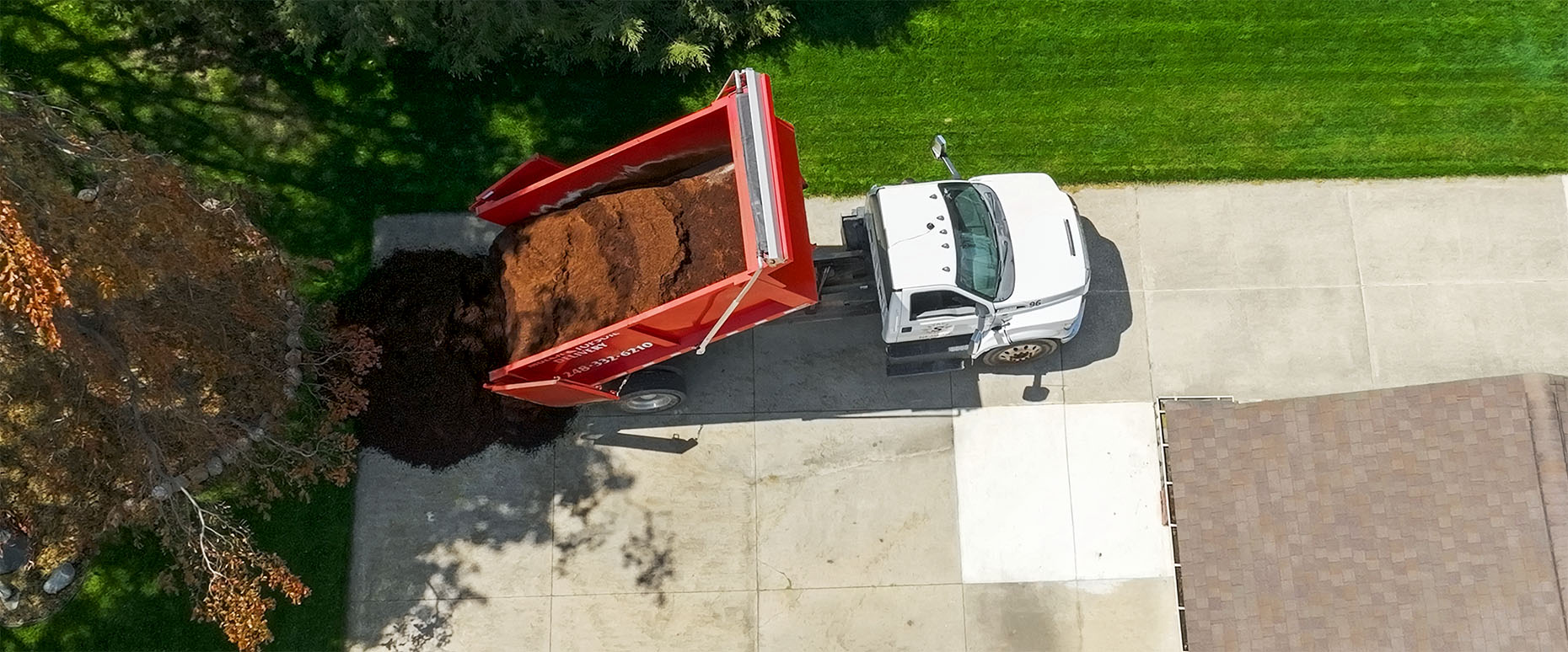
If you’re new to or across your lawn, one of the first questions that comes up is: how much do I actually need? Buying bulk compost can feel overwhelming when you’re staring at cubic yards instead of small bags. The good news is that our Southeast MI landscaping supply company has some straightforward guidelines to help you plan.
Here’s what you need to know about the right amount of premium compost for refreshing vegetable beds, improving your lawn, or preparing new planting holes
For brand-new garden beds, aim to spread 1 to 3 inches of compost over the area and then mix it into the top 6 to 8 inches of soil. This creates a nutrient-rich foundation that supports strong root growth and water retention. A bulk amount of compost not only saves money compared to bagged options, but also ensures consistency in quality across the whole bed.
Related Post → The Benefits of Quality Topsoil for Your Garden
For existing vegetable or flower beds, you don’t need as much. A lighter application of ¼ to 1 inch of gardening compost per year is enough to maintain fertility. Simply spread it over the soil surface as a top dressing or gently work it into the top layer. Ordering from our bulk compost supplier makes this annual refresh easy, especially when you’re feeding multiple beds at once.
Grass benefits from compost too, whether you’re maintaining an established yard or starting fresh. For existing lawns, the goal is to add organic matter without smothering the grass. Apply a thin layer of ¼ to ½ inch of compost over the surface. This helps reduce compaction, improve soil structure, and feed beneficial microbes that support turf health.
When creating a new lawn, you’ll want a heavier application. Spread 1 to 2 inches of over the area before seeding or laying sod. Mixing it into the topsoil gives your grass the best chance at developing strong, deep roots. Many homeowners compare compost vs. mulch for lawns, but the two serve different purposes: compost improves the soil itself, while landscaping mulch helps with moisture control and weed suppression on top of the soil.
If you’re digging new holes for trees or shrubs, compost can help those roots establish faster. The general guideline is to mix your native soil with up to 25% compost. This blend ensures the roots don’t sit in overly rich soil that discourages them from spreading. A balanced mix creates better drainage and provides steady nutrients as the plant adjusts.
When choosing compost for tree planting, you can’t go wrong buying from our local compost supply company. Premium compost from a reliable source ensures consistency and saves you from making multiple trips for bags. Plus, with bulk compost delivery, you can have exactly what you need dropped right at your driveway.
The trickiest part of using compost for gardening or a yard is figuring out the right volume. Compost is usually sold by the cubic yard, which covers about 324 square feet at 1 inch deep.
If math isn’t your favorite task, don’t worry. Our team can help calculate exactly how much compost your project requires. From ordering landscaping materials to arranging bulk delivery, we’ll guide you so you get just the right amount, without overspending or underestimating.
Adding compost sets the stage for healthier soil and stronger plants. The right amount depends on your project, but the principles are simple once you know them. If you want both quality and value, our landscaping supply company in Auburn Hills and Oxford, MI, would be happy to help with premium compost. Call State Crushing today at (248) 338-3310 or contact us online to request a quote.